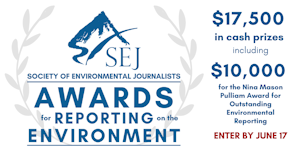"In 2006, when beekeepers began to report that their hives were suffering from a mysterious affliction, a wide variety of theories were offered to explain what was going on. ... Over the last few weeks, several new studies have come out linking neonicotinoids to bee decline. As it happens, the studies are appearing just as 'Silent Spring,' Rachel Carson’s seminal study of the effect of pesticides on wildlife, is about to turn fifty: the work was first published as a three-part series in The New Yorker, in June, 1962. It’s hard to avoid the sense that we have all been here before, and that lessons were incompletely learned the first time around."












 Advertisement
Advertisement 



